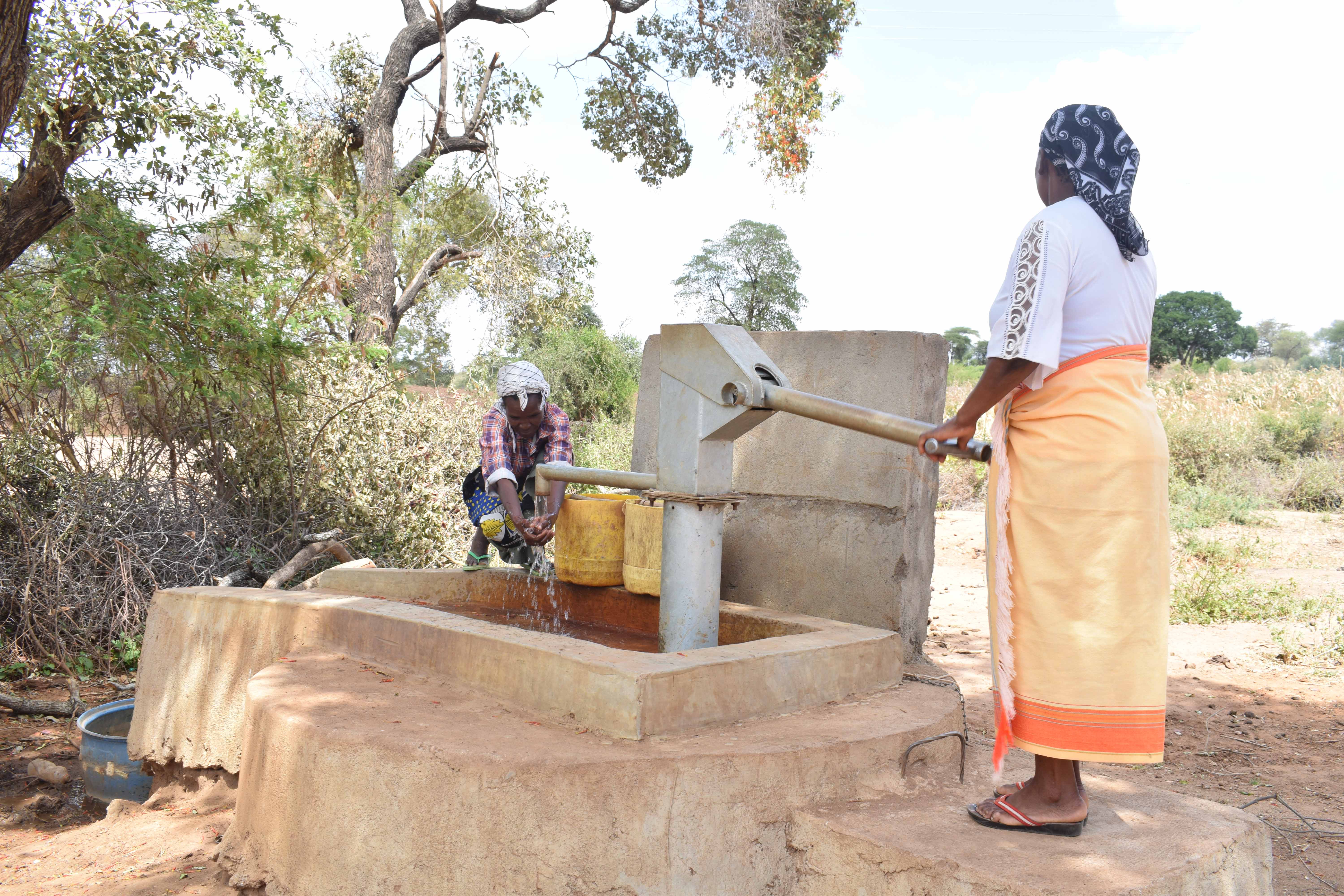This project is a part of our shared program with Africa Sand Dam Foundation. Our team is pleased to directly share the below report (edited for clarity, as needed).
Welcome to the Community
Tei wa Nzung’u Self-Help Group lives in the upper area of southeastern Kenya. This area is regarded as the driest of Kitui County with little to no rainfall. Kitui temperatures range from 14 to 34C (57 to 93F), with July the coldest month and September the hottest.
Because of a lack of rainfall, there are limited water sources. There are seasonal rivers that form after a bout of rain, but quickly dry up after. The Athi River and Tana River are the only main rivers in the entire county, and form the borders for that area.
There are cultural practices that persist rather than progress; women are still not allowed to make decisions without the approval of men here. Tei wa Nzung’u Self-Help Group was formed with the goals of not only addressing water scarcity in the community, but of countering this retrogressive structure. Most of the members of the group are women who rely on farming as their main source of income.
This area has a huge population of 880 people from dozens of different households. (Editor’s Note: While this many people may have access on any given day, realistically a single water source can only support a population of 350-500 people. That’s why it’s so great that this community has agreed to a five year plan to build more sand dams and hand-dug wells. To learn more, click here.)
Water Situation
The Kamuwongo River is the seasonal source closest to this community. There is also an unprotected spring. Still, these sources are quite a distance away, forcing women and children to spend an average of four to six hours a day fetching water. There isn’t a safe water access point at the river either, so scoop holes are dug along the river channel to get to hit the water table underneath.
20-liter jerrycans are used for fetching water, and are carried back home. Once home, water is dumped into a larger, 200 to 400-liter plastic container for storage.
A lot of time is wasted on water, making the community sacrifice many income-generating activities.
Sanitation Situation
A little more than half of homes in this area have a pit latrine. They are both shallow and poorly constructed. We met one of the women from the self-help group, Priscah Muteti. She said, "Having a good toilet is a luxury many cannot afford. Many still use the bush to relieve themselves. We are now learning that will increase diseases among the population." You can see Priscah Muteti and her household under the "See Photos & Video" tab below.
We couldn’t find any helpful hygiene and sanitation tools like dish racks, clotheslines, or hand-washing stations. Garbage is sorted between biodegradable and not, so that compost can be fed to animals and fertilize farms. Excess non-biodegradable is often burned.
Plans: Hygiene and Sanitation Training
To address the concerns above, hygiene and sanitation training will be offered to self-help group members on two consecutive days. Once the members have learned about useful practices and tools to improve health, they will be able to share with their families and neighbors. Since open defecation is an issue, an emphasis will be placed on latrine construction and use.
Training participants will also form a committee that is responsible for overseeing and maintaining the new water system.
Plans: Hand-Dug Well
This hand-dug well will be installed adjacent to the sand dam being constructed (click here to view that sand dam project). This location will ensure that the well always has a sufficient amount of water. As the sand dam matures and builds up sand, the water table will rise and the sand will naturally filter that water. The hand-dug well will give locals a safe and convenient method to access drinking water.
Well construction is expected to take one month after materials are delivered to the site. Group members will excavate the hole, and then the inside will be lined with concrete. Finally, a new AfriDev pump will be installed.

 Protected Dug Well
Protected Dug Well
 Rehabilitation Project
Rehabilitation Project
























